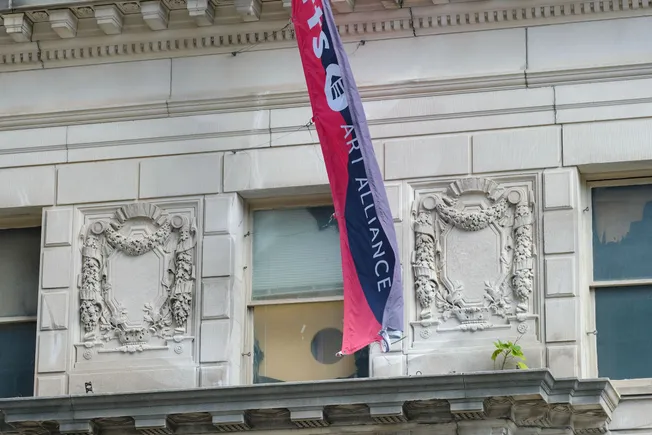Dive Brief:
- A federal judge Thursday temporarily blocked the U.S. Department of Education’s new Title IX rule from taking effect in four states, marking the controversial rule’s first significant legal setback.
- In April, the department expanded regulations under Title IX — which bans sex-based discrimination in federally funded education programs — to include protections for LGBTQI+ students and employees.
- But in Judge Terry Doughty’s decision for the Western District of Louisiana, he said that interpretation would “subvert the original purpose of Title IX: protecting biological females from discrimination.” The injunction, which came in a lawsuit filed by Louisiana, Mississippi, Montana and Idaho, effectively hits pause on the rule’s Aug. 1 start date in the four states.
Dive Insight:
Upon its release on April 19, the Education Department’s Title IX regulation drew mixed responses. In addition to adding LGBTQI+ protections, the rule lifts a Trump-era requirement that colleges hold live hearings for sexual misconduct cases. Colleges will also be required to investigate a broader category of complaint under the new regulations.
Civil rights activists and advocates for sexual assault survivors praised the changes. But conservative and free speech groups argued the Education Department’s revision goes beyond its purview and would push colleges to punish protected speech.
Louisiana and a host of other states filed lawsuits against the department soon after the rule’s release. In her lawsuit, Louisiana Attorney General Liz Murrill argued the Education Department had overstepped its authority.
Doughty’s 40-page ruling Thursday did not weigh in on the merits of the state’s argument. But the judge wrote that the inclusion of gender identity, sex stereotypes, sexual orientation and sex characteristics under Title IX’s definition “discrimination on the basis of sex” ran antithetical to the law’s original purpose.
“Allowing this would allow decades of triumphs for women and men alike to go down the drain,” Doughty wrote.
He also noted that the new Title IX rule did not address students who identify as nonbinary, something he said is of “vast political significance because it is a polarizing political issue that an agency has no authority to make.”
The Education Department is reviewing the ruling and stands by the final Title IX regulation, a spokesperson told K-12 Dive.
“The Department crafted the final Title IX regulations following a rigorous process to realize the Title IX statutory guarantee,” the spokesperson said in a statement.
Murrill hailed Thursday’s ruling as a win against federal government interference, calling the inclusion of protections for LGBTQI+ people an example of “illegal and radical gender ideology.”
“Along with Idaho, Mississippi, and Montana, states are fighting back in defense of the law, the safety and prosperity of women and girls, and basic American values,” Murrill said in a statement.
But the Human Rights Campaign, one of the most prominent LGBTQ+ groups, blasted the injunction as a means of weaving discrimination into law.
“Every young person deserves protection from bullying, misgendering, and abuse,” Kelley Robinson, president of HRC, said in a statement Thursday. “Today’s decision prioritizes anti-LGBTQ+ hate over the safety and well-being of students.”
While Louisiana’s case makes the first judicial blow to Title IX, the Education Department is still facing eight additional lawsuits brought by 26 states over the rule.
A separate judicial decision in Texas this week also signals trouble for LGBTQ+ protections under Title IX.
A federal judge Tuesday ruled that the Education Department did not have the authority to tell states how to interpret the law as it did back in 2021. That year, the agency issued guidance that discriminating against gay and transgender individuals violated Title IX.
The department also failed to give the states a chance to submit input on that interpretation, according to the Tuesday ruling.
Under the decision, the Education Department cannot use guidance documents it released in 2021 to protect Texas’ LGBTQ+ students under Title IX.












.jpg?itok=F2C4uk0x)







Discussion about this post